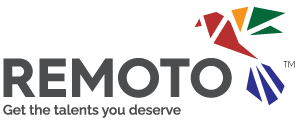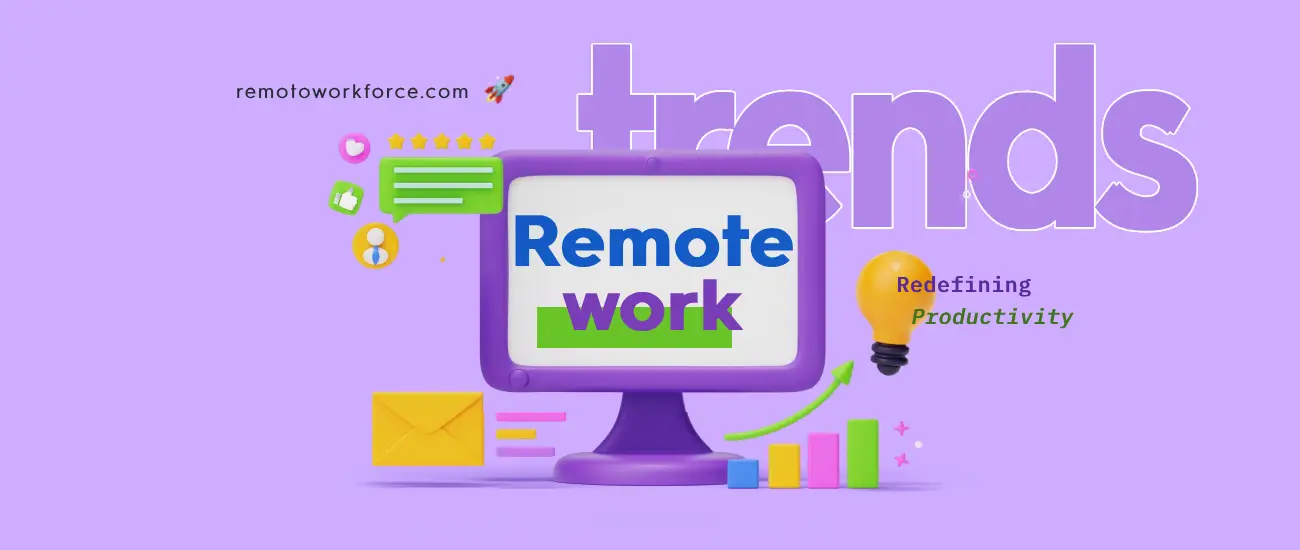Work as we know it has shifted beyond recognition. Remote models have moved from emergency measures to foundational strategies that are reshaping how companies operate, collaborate, and measure success.
As flexibility takes center stage, the definition of productivity is evolving, too. New trends steer attention away from traditional metrics and push businesses toward results-driven, human-centered approaches.
Let’s analyze the forces driving this new world of work.
Flexibility Moves from Perk to Productivity Engine
Not long ago, flexible work arrangements were considered an extra benefit, available to only a handful of employees. Now, flexibility stands at the heart of organizational strategy. Workers want the freedom to align their work with their energy rhythms, personal responsibilities, and creative peaks.
Companies embracing flexible structures are seeing measurable improvements in both engagement and output. When people control where and when they work, they produce higher-quality results. Trust becomes a key element, replacing outdated ideas that productivity depends on time spent sitting at a desk.
Businesses that center operations around autonomy rather than control position themselves to lead in talent retention, performance, and innovation. Flexibility is no longer optional for companies that aim to thrive.
Asynchronous Work Redefines Global Collaboration
Synchronous communication, once the default, is being replaced by asynchronous collaboration. Remote teams operating across time zones cannot rely on real-time meetings to drive progress. Instead, they focus on writing down decisions, clearly assigning ownership, and talking in ways that don’t require immediate response.
This model improves efficiency by allowing individuals to work when they are most productive, rather than forcing them into rigid schedules. It also reduces meeting overload, freeing valuable time for focused, meaningful work.
By mastering asynchronous communication, companies open the door to global talent pools. Projects move forward around the clock, innovation accelerates, and employees experience less burnout. Companies that invest in asynchronous workflows will continue to outpace those clinging to traditional models.
Outcome-Based Performance Metrics Replace Presenteeism
For too long, visibility and constant availability were mistaken for real productivity. Remote work exposed the flaws in that system, showing that time logged does not always equal the value delivered. Now, outcome-based performance models are redefining how success is measured.
Rather than tracking effort, companies set clear goals, define key results, and align teams around purpose-driven achievements. This shift empowers employees to work smarter, experiment with new methods, and take ownership of their outcomes.
Teams operating within outcome-based systems are not just more productive. They are more creative, resilient, and motivated. Businesses prioritizing results over appearances create stronger foundations for long-term growth and innovation.
Digital Wellness Becomes Central to Sustained Performance
The early stages of remote work blurred the lines between personal and professional life. With workspaces and living spaces merged, stress levels climbed, and burnout became a serious concern. As a result, digital wellness has taken center stage in conversations around sustainable productivity.
Promoting digital wellness goes far beyond offering meditation apps or encouraging employees to unplug after hours. Companies are building systemic solutions, from meeting-free focus blocks to mental health days and proactive workload management.
Companies that make digital wellness a priority are investing in the resilience and creativity of their teams. Healthy, well-supported employees bring sharper focus, greater emotional intelligence, and more sustainable energy to their work. These advantages translate directly into stronger performance across the board.
Continuous Learning Fuels Future-Proof Teams
Technological and organizational change show no signs of slowing. Continuous learning is now a core necessity for teams aiming to stay competitive.
Companies that embrace continuous learning embed it into the flow of work. They encourage microlearning, sponsor certification programs, foster peer-to-peer mentorship, and give employees access to learning opportunities during work hours. Learning becomes a natural part of each project cycle, not a burdensome afterthought.
This approach fuels two critical outcomes. Teams stay agile, ready to face new challenges and seize emerging opportunities. At the same time, employees feel valued and motivated, knowing that their growth matters. Companies that weave learning into their culture are building more innovative, adaptable, and loyal teams.
Technology as an Enabler, Not a Distraction
In the rush to support remote work, many companies have piled on new tools without strategic integration. While technology is crucial, poorly managed tech stacks create confusion, slow workflows, and increase frustration.
The future belongs to companies that view technology as an enabler rather than a centerpiece. Instead of adding platform after platform, smart organizations simplify. They streamline communication, automate repetitive tasks, and prioritize tools that truly enhance focus and collaboration.
When technology fades into the background, employees can concentrate on meaningful work. Well-integrated systems create smoother workflows, faster decision-making, and a better overall experience. Businesses that refine their digital environments will be better equipped to grow and adapt.
Building Connection and Culture in Distributed Teams
A strong culture is not tied to an office space. It lives in shared values, daily habits, and intentional efforts to foster belonging. Remote teams that succeed in building deep connections are proving that culture can thrive across any distance.
Leaders play a crucial role in modeling openness, inclusion, and transparent communication. Teams that invest in regular celebrations, peer recognition, cross-functional collaboration, and social connection initiatives strengthen their bonds over time.
Connection fuels engagement, collaboration, and resilience. Companies that approach culture building with creativity and care are creating teams that not only perform at high levels but also weather challenges with greater unity and strength.
Redefining Productivity for a New Era
Remote work has changed more than just where people work. It has reshaped how we define success. Productivity is no longer measured by visible effort or constant availability. It is measured by meaningful results, sustained focus, flexible structures, human well-being, and continuous growth.
Companies that lead in this new world do not try to replicate old office habits remotely. They are the ones that embrace flexibility, trust, connection, and impact. Productivity has become less about time spent and more about value created, with people at the heart of every success story.
In addition, companies willing to rethink, adapt, and prioritize human potential will set the standard for the future of work.














